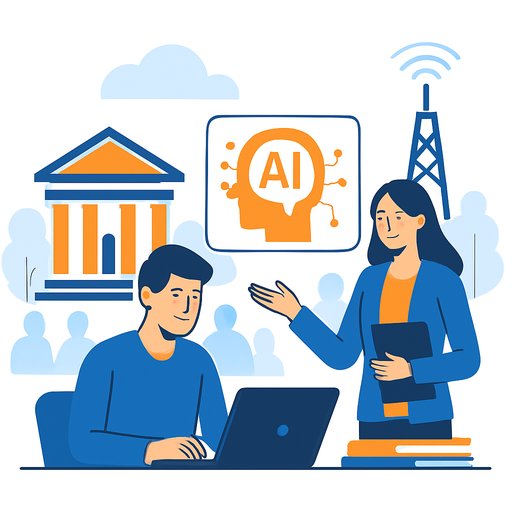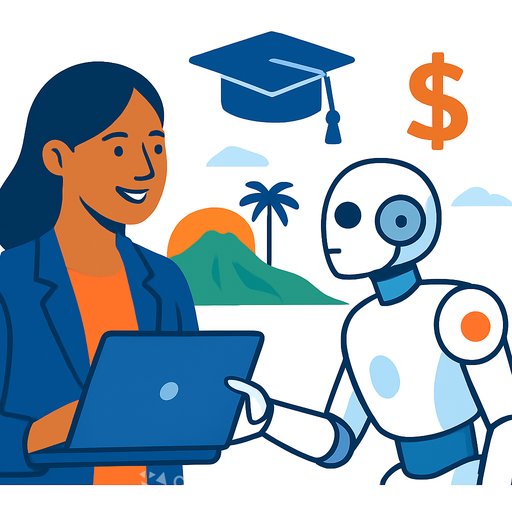Collaboration UMY-Telkom Continues: Thousands of UMY Students Prepared for AI Internships
Date: 23 October 2025, 12:54
Universitas Muhammadiyah Yogyakarta (UMY) is extending its collaboration with Telkom to open large-scale internship opportunities focused on AI. The signal is clear: graduates are expected to ship real work, not just pass exams.
What this means for educators
Curriculum has to meet project needs-fast. That means job-ready skills, measurable output, and a clean bridge from classroom to production work.
- Sync course outcomes with internship tasks and workflows.
- Shift assessments from theory-heavy to portfolio-first.
- Build a steady pipeline: talent screening, skills bootcamps, and project mentors.
Likely internship focus areas
Based on common needs across telecom and AI teams, expect emphasis on these tracks. Keep your teaching plans close to them.
- Data analysis and business intelligence (Python, SQL, dashboards)
- Machine learning basics and model evaluation
- Natural language tasks (chatbots, retrieval, summarization)
- Computer vision for quality control and operations
- Automation and analytics for network and customer operations
- Responsible AI: privacy, bias checks, documentation
- Product analytics and A/B testing for measurable impact
8-12 week quick-start skills map
- Weeks 1-2: Python, SQL, data cleaning, version control
- Weeks 3-4: EDA, metrics, basic ML (classification/regression), error analysis
- Weeks 5-6: NLP use cases, retrieval-augmented workflows, prompt design
- Weeks 7-8: Cloud basics, containers, reproducible notebooks, APIs
- Weeks 9-10: Responsible AI, privacy-by-design, model cards
- Weeks 11-12: Capstone with a real stakeholder and clear KPIs
Selection and readiness checklist
- Portfolio with 2-3 clean, scoped projects (repo + short write-up + results)
- Proficiency: Python, SQL, Git; basic data viz; clear communication
- Applied prompt skills with before/after examples and test cases
- Evidence of teamwork: issues, PRs, peer reviews
- Ethics: privacy handling, bias checks, clear documentation
Faculty actions to take this semester
- Map each course outcome to one internship task (one line each, no fluff)
- Adopt a standard project template: problem, data, method, metrics, limits, next steps
- Run short code reviews in class-treat them like stand-ups
- Invite industry mentors for two checkpoints: mid-project and pre-demo
Assessment that fits internship outcomes
- 50% project results (clear metric movement, reproducibility)
- 20% communication (brief, demo, and stakeholder Q&A)
- 20% collaboration (issues, commits, reviews)
- 10% ethics and documentation (privacy, bias notes, readme quality)
Suggested workflow for student teams
- Define the problem in one paragraph and choose one core metric
- Ship a baseline in week 1; improve in small, trackable steps
- Log every change with metric impact; cut what doesn't help
- Demo early, demo often; collect feedback and tighten scope
Risks to watch-and how to handle them
- Scope creep: lock a minimal feature set and freeze it mid-cycle
- Messy repos: enforce a simple branch strategy and pre-commit checks
- Data privacy: scrub PII, use synthetic samples for demos, document access
- Tool overuse: prioritize fundamentals; tools come second
Why this partnership matters
Thousands of students moving into AI internships raises the bar for job readiness. Programs that ship results will place more students, more consistently.
Helpful resources
Set clear outcomes, shorten the loop from learning to shipping, and give students a portfolio that proves value on day one. That's how this collaboration turns into careers.
Your membership also unlocks:






